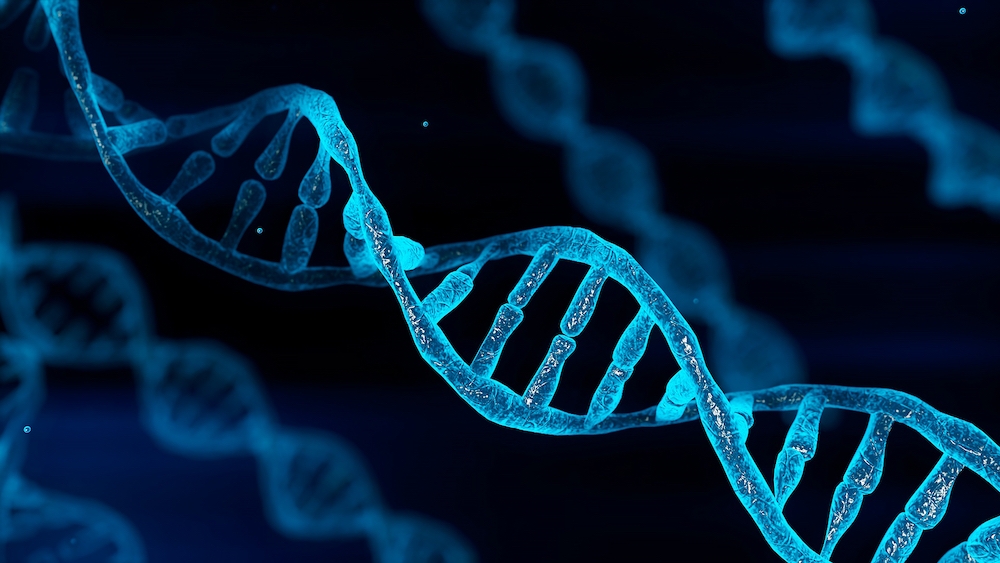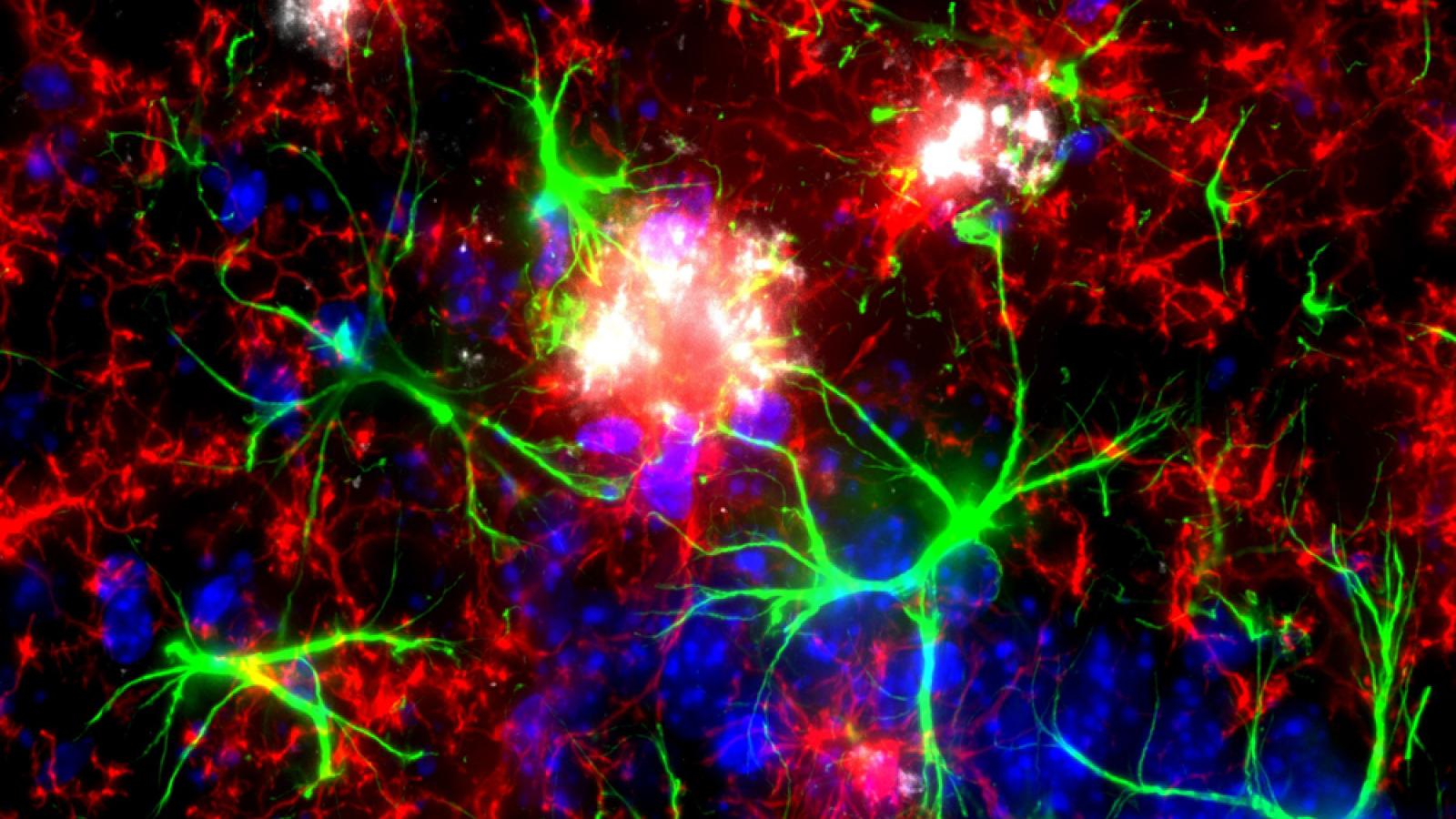Research led by Prof Bart De Strooper (UK DRI at UCL & VIB-KU Leuven Center for Brain & Disease Research) and Pranav Preman (VIB-KU Leuven Center for Brain & Disease Research) reveals a role for the star-shaped supporting brain cells known as astrocytes in the accumulation of toxic amyloid protein in Alzheimer’s. The study, published in EMBO Molecular Medicine, could lead to new therapeutic avenues for the condition.
What was the challenge?
A key risk factor for Alzheimer’s is a gene variant called APOE4, which speeds up the accumulation of toxic amyloid plaques in the brain. Scientists have debated whether this effect comes from APOE activity in microglia, the brain’s resident immune cells, or in astrocytes, a type of support cell in the brain. In this study, the De Strooper Lab aimed to test this to determine the role of astrocytes and microglia in amyloid accumulation.
Our study highlights the central role of astrocytes in driving the accumulation of amyloid, offering fresh insight into how Alzheimer’s risk genes like APOE interact with brain cells. By uncovering these mechanisms, we open up new possibilities for targeted therapies that could slow or even prevent disease progression.
Group Leader
What did the team do and what did they find?
The researchers studied a mouse model of Alzheimer’s which did not have APOE expressed, and added human APOE gene variants specifically to the astrocytes of the mice. The scientists found that not only did expressing human APOE within these astrocytes lead to the accumulation of amyloid in the brains of the mice, but it also triggered Alzheimer’s-like changes in nearby microglia.
They repeated their experiment with different variants of APOE, including APOE2 which is associated with a lower risk of Alzheimer’s. Interestingly, both APOE4 and the protective APOE2 variant increased the formation of amyloid plaques, indicating that the protective role of APOE2 may not affect the formation of plaques, but rather could affect how cells respond to the toxic protein.
What was the impact?
These results unlock new insight into the role astrocytes play in how APOE contributes to the accumulation of amyloid beta, and influence the behaviour of microglia in Alzheimer’s. The study reinforces APOE as a critical therapeutic target for Alzheimer’s.
Reference: Preman P, Moechars D, Fertan E, Wolfs L, Serneels L, Shah D, Lamote J, Poovathingal S, Snellinx A, Mancuso R, Balusu S, Klenerman D, Arranz AM, Fiers M, De Strooper B. APOE from astrocytes restores Alzheimer's Aβ-pathology and DAM-like responses in APOE deficient microglia. EMBO Mol Med. 2024 Dec;16(12):3113-3141. doi: 10.1038/s44321-024-00162-7.
Genetics
Explore how UK DRI researchers are unravelling the DNA code to better understand risk factors and drivers of disease

Banner image credit: Izzie Prankerd, Duff Lab

